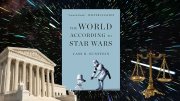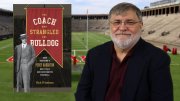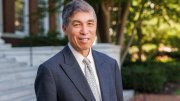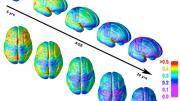Cass R. Sunstein ’75, J.D. ’78, is currently the Walmsley University Professor at Harvard Law School, where he also directs the Program on Behavioral Economics and Public Policy. His work explores how people make decisions—and how institutions might better account for those decisions in shaping public policy. In the words of contributing editor and journalist Lincoln Caplan ’72, J.D. ’76, Sunstein “has been regarded as one of the country’s most influential and adventurous legal scholars for a generation” (Read more in “The Legal Olympian” by Lincoln Caplan, January-February 2015).
From 2009 to 2012, Sunstein served as administrator of the White House Office of Information and Regulatory Affairs, playing a central role in efforts to streamline federal regulation during the Obama administration. He has advised lawmakers and foreign governments on constitutional design and legal reform and, in 2020, was appointed chair of the World Health Organization’s advisory group on behavioral science and health policy.
He is also a prolific writer, with a body of work that spans legal theory, risk analysis, public health, and the role of dissent in democratic life. His books include The World According to Star Wars (2016), Republic.com (2002), Why Societies Need Dissent (2005), and Nudge (2009), co-authored with economist Richard Thaler. In 2018, he received the Holberg Prize, an international award recognizing major contributions to the humanities and social sciences. Sunstein continues to write and teach, focusing recently on group decision-making and the concept of liberty in contemporary governance. Sunstein was one of the first scholars to write about the polarizing tendencies of the internet (Read more in “The Internet: Foe of Democracy?” by Jonathan Shaw, March-April 2009).
What do you do and teach at Harvard and what drew you to this field of study?
I teach administrative law, behavioral law and economics, and a seminar on the Supreme Court. Most of my writing is in those fields. (Nudge (2009), with Richard Thaler, is a behavioral economics book; The Cost-Benefit Revolution (2018) is an administrative law book; and guess what kind of book How to Interpret the Constitution (2023) is?) I also help run programs at Harvard on artificial intelligence and the law and on behavioral economics and public policy. But just on a lark, I started writing about Star Wars, maybe because my son (then about seven years old) really liked it. I got curious: Why is it so iconic? How did that happen? I feared that no one would publish a book by a law professor on Star Wars, and a lot of publishers turned me down, but at a late stage, one of them decided to take a chance on this particular Padawan.
In The World According to Star Wars (2016), you explore how the Star Wars saga reflects themes of unexpected turns and constitutional evolution. Given the recent shifts in the Supreme Court’s approach to precedent and constitutional interpretation, do you see parallels to the way Star Wars narratives evolve in ways that reframe earlier stories?
Definitely. The Empire Strikes Back altered and deepened A New Hope. Darth Vader is Luke’s father! Who knew? Return of the Jedi altered both of its predecessors: Leia is Luke’s sister! (Yuck! They nearly, well, you know.) In striking down affirmative action programs and insisting that the Constitution requires colorblindness, the Court created and solidified a new narrative about what equality means. And in moving toward the idea that the president is in charge of all those who implement federal law (and thus endorsing the idea of the “unitary executive”), the Court rewrote the tale of separation of powers. In terms of method, “originalism,” which understands the Constitution in terms of its original public meaning, wasn’t much around from (say) 1910 to 1980. Now it’s in the ascendency, and it is reframing everything. Earlier stories—about freedom of speech, gun rights, and much more—are being retold.
You write about the balance between fate and free will in Star Wars—a tension that also resonates in judicial philosophy. In today’s politically polarized climate, do you believe the Supreme Court is acting more like a Jedi Council shaping destiny or like rogue actors asserting ideological will under the guise of textual fidelity?
That might be a little like asking whether the current Boston Celtics are the best basketball team ever, by far, or whether they are really bad and the beneficiary of a ton of good luck. Meaning: neither of the above! Alas, no Supreme Court consists of Jedi Knights. Happily, no Supreme Court has consisted of rogue actors. (Though note well: Rogue One is the most underrated Star Wars movie. It might be the most underrated movie of all time.) The Court certainly doesn’t consist of Sith Lords. They are lawyers, and pretty good ones, and while they sometimes get it wrong (don’t we all?), we’re lucky they’re there. The reason is that for all their differences, all of them believe in the rule of law.
What are you currently working on?
I am now finishing a book on manipulation—what it is, what’s wrong with it, and what to do about it. We know a lot about fraud and deception. By contrast, manipulation is a bit of uncharted territory, and I aim to chart it. Emperor Palpatine, by the way, was a master at manipulation. Also, I think I am starting a new book called Wanting the Wrong Things. It isn’t about Luke and Anakin. But it will have something to do with the dark side (also consumer protection). The title is risky, I know; I might find myself in self-help sections of bookstores.
What is your favorite part of the teaching or research process?
That’s easy. It’s when an original idea comes to visit. You feel a tingle on the back of your neck. Once in a while (not often), you get that tingle. And if you start to write it up, there might come a point where you feel an internal signal: This is going to work. It feels like a gift.









